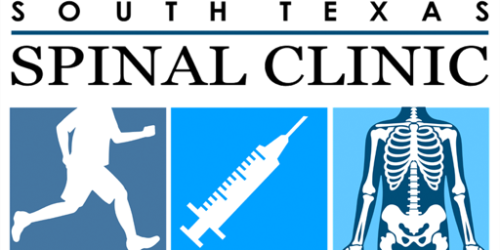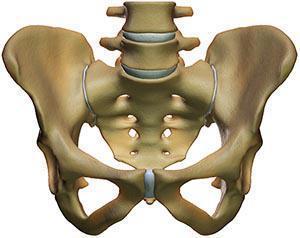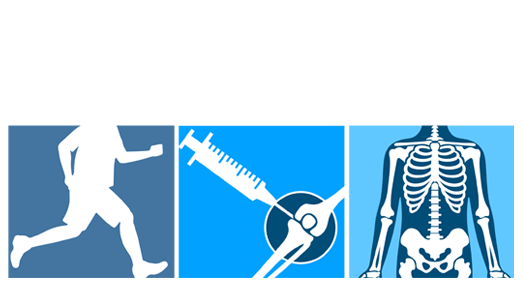

Orthopedic Surgeons and Physical Therapists Located in San Antonio and South Texas
Sacroiliac Joint Fusion Q and A
 Are you dealing with persistent lower back pain? If so, the potential culprit might be your sacroiliac (SI) joint. The physicians at South Texas Spinal Clinic, serving San Antonio and South Texas, specialize in diagnosing and treating chronic low back pain, including sacroiliac joint dysfunction or sacroiliitis. If you are experiencing ongoing lower back pain, reach out by calling or scheduling an appointment online today.
Are you dealing with persistent lower back pain? If so, the potential culprit might be your sacroiliac (SI) joint. The physicians at South Texas Spinal Clinic, serving San Antonio and South Texas, specialize in diagnosing and treating chronic low back pain, including sacroiliac joint dysfunction or sacroiliitis. If you are experiencing ongoing lower back pain, reach out by calling or scheduling an appointment online today.
Sacroiliac Joint Fusion Q & A
 What is the sacroiliac joint? Situated in the pelvis, the sacroiliac (SI) joint connects the iliac bones to the sacrum (the lowest part of the spine above the tailbone). This joint acts as a shock absorber, shielding your spine from the impact of abrupt movements.
What is the sacroiliac joint? Situated in the pelvis, the sacroiliac (SI) joint connects the iliac bones to the sacrum (the lowest part of the spine above the tailbone). This joint acts as a shock absorber, shielding your spine from the impact of abrupt movements.
 Do you have SI joint pain? Clinical studies have identified the SI joint as a significant pain source in 15-30% of low back pain patients, and it is frequently implicated in up to 43% of individuals experiencing persistent low back pain post lumbar fusion. Similar to other joints, the SI joint can sustain injuries or become degenerative, leading to buttock pain and, on occasion, low back, leg, and groin discomfort. This pain may intensify during activities like lifting, running, walking, or even when sleeping on the affected side.
Do you have SI joint pain? Clinical studies have identified the SI joint as a significant pain source in 15-30% of low back pain patients, and it is frequently implicated in up to 43% of individuals experiencing persistent low back pain post lumbar fusion. Similar to other joints, the SI joint can sustain injuries or become degenerative, leading to buttock pain and, on occasion, low back, leg, and groin discomfort. This pain may intensify during activities like lifting, running, walking, or even when sleeping on the affected side.
 What are the symptoms of SI joint pain?
What are the symptoms of SI joint pain?
- Lower back pain
- Sensation of low extremity: pain, numbness, tingling, weakness
- Pelvis/buttock pain
- Hip/groin pain
- Feeling of leg instability (buckling, giving way)
- Disturbed sleep patterns due to pain
- Disturbed sitting patterns (unable to sit for extended periods, favoring one side)
- Pain transitioning from sitting to standing
How does my doctor determine the source of my lower back pain? The South Texas Spinal Clinic team employs various tests to ascertain if the SI joint is the origin or a contributing factor to your lower back pain. Following a physical examination, your doctor may order X-rays, a CT scan, or an MRI for diagnostic purposes. Anesthetic injections may also be utilized to assess the SI joint’s role in your back pain. In this procedure, a local anesthetic is injected into the SI joint, and the doctor observes whether your pain diminishes. A decrease in symptoms by at least 50% indicates that the SI joint is either the source or a significant contributor to your lower back pain.
How is SI joint pain treated? The specialists at South Texas Spinal Clinic provide a range of treatment options to alleviate lower back pain associated with the SI joint. Short-term relief methods include:
- Medications for pain relief
- Steroid injections
- Physical therapy
For those seeking long-term pain relief, minimally invasive surgery may be a viable option.
SI Joint Fusion with the iFuse Implant System
The doctors at South Texas Spinal Clinic employ the iFuse Implant System to stabilize and fuse specific SI joint disorders, offering lasting pain relief. This system utilizes triangular-shaped titanium implants inserted across the SI joint to enhance post-surgical stability and weight-bearing capacity. The minimally invasive procedure involves a small incision on the buttock and typically takes about an hour.
Treatment of SI joint conditions using the patented triangular design of the iFuse Implant™ has demonstrated positive clinical outcomes. Over thirty published, peer-reviewed articles attest to the safety and effectiveness of the iFuse Implant System. iFuse stands out as the sole SI joint fusion system supported by clinical studies showing improved pain, patient function, and quality of life.
If chronic lower back pain is affecting your life, don’t delay seeking assistance. Contact South Texas Spinal Clinic or conveniently schedule an appointment online today.
SI joint surgery, also known as sacroiliac joint fusion, is a procedure designed to alleviate chronic pain in the sacroiliac joint, which connects the spine to the pelvis. When non-surgical treatments like physical therapy and injections fail to relieve SI joint dysfunction, surgery may be recommended. The procedure typically involves minimally invasive techniques to fuse the joint, stabilizing it and reducing painful movement. SI joint surgery can provide significant pain relief, improve mobility, and enhance the overall quality of life for patients suffering from debilitating lower back or pelvic pain due to SI joint issues.

